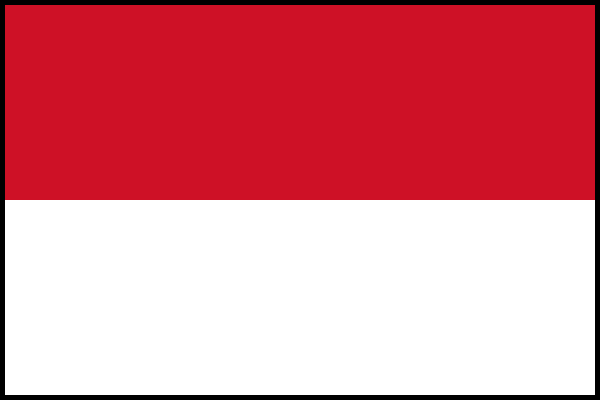Key global insights
Australia’s newly released 2024 National Hydrogen Strategy targets 15 million tonnes of hydrogen production by 2050, with a potential for 30 million tonnes. At the core of the strategy are production incentives announced as part of the Australian Government’s $22.7 billion Future Made in Australia plan. The strategy will support the more than 50 renewable hydrogen, ammonia and sustainable fuel projects in various stages of development across Queensland.
The Australian Olympic Committee has launched the Future Green and Gold campaign to find future athletes for the Brisbane 2032 Olympic and Paralympic Games. The nationwide talent search, led by the AIS in collaboration with state institutes and national sporting organisations, targets Australians aged 13-23 across 40 sports. The initiative aims to build Australia's talent pipeline for the home Games, providing a pathway for both new and transitioning athletes to enter high-performance programs.
Rio Tinto will acquire 3,000 hectares of land near Townsville to establish a Pongamia seed farm to study growth conditions and measure seed oil yields as part of a biofuels pilot. The project will explore the potential of Pongamia seed oil as a feedstock for renewable diesel. Rio Tinto has partnered with Midway Limited, to oversee the planting and management of the Pongamia seed farms and prioritise opportunities for Traditional Owners and local communities.

Prabowo Subianto, Indonesia’s new president, will prioritise military modernisation, increasing defense spending by 22% to 165.2 trillion rupiah (AUD$16 billion) in 2025. He is expected to centralise defense and foreign policy, focusing on partnerships with France and Turkey. However, Indonesia's ambivalence toward the US-China rivalry may cause friction in bilateral relations. Queensland could benefit from enhanced defense ties, particularly in joint training and technology exchange.
Wild Barra, the first Indigenous fragrance line from an Indigenous brand, offers genderless scents designed to appeal to a broad market while deeply integrating cultural ties to North Queensland. The brand emphasises cultural safety, sustainability, and a strong connection to the land, with future plans to expand into room sprays for international resorts. This development highlights opportunities for Queensland to showcase First Nations culture through innovative and global ventures.
The Queensland government has launched the Queensland Aquaculture Strategy 2024–2034, committing $15 million to further grow the state's booming aquaculture industry. This investment, following a $7.5 million boost in March 2023, focuses on sustainable growth through research, biosecurity, and farm automation. The strategy also supports First Nations businesses and aims to capitalise on opportunities ahead of the Brisbane 2032 Olympics. With the industry now valued at a record $263 million, the plan will help meet rising demand for high-quality seafood while boosting regional economies.
The Queensland Government has launched an $8 million funding program in partnership with The University of Queensland to foster a critical minerals circular economy. This initiative is part of the broader $315 million Queensland Critical Minerals Strategy aimed at developing sustainable mining and processing capabilities. The program seeks to enhance the state's role in the renewable technology sector, focusing on efficiency and sustainability in critical mineral production.
Featured insights

Australia strikes agreement with United Arab Emirates
- Australia has signed a Comprehensive Economic Partnership Agreements with the United Arab Emirates.
- Over 99% of Australian products will enter the UAE tariff-free, increasing exports by $678 million annually.
- Australian farmers will benefit, saving $50 million per year through preferential access.
- The deal also supports critical minerals with reduced tariffs on alumina, as well as encouraging investment.
- Two-way trade between Australia and the UAE reached nearly $10 billion last year, with investment topping $20 billion.
- Queensland’s agriculture and minerals sectors stand to gain from the enhanced trade opportunities.

Time to prioritise: Australia’s hydrogen dream
- The Central Queensland Hydrogen Hub (CQ-H2) could supply renewable hydrogen and ammonia to Europe.
- It comes after Australia and Germany signed a $660 million deal under the H2Global subsidy scheme.
- The agreement was announced at the Asia-Pacific Hydrogen 2024 Summit, reflecting Europe’s growing interest in Australian hydrogen.
- CQ-H2 has Japan’s Marubeni and Iwatani Corporations, Singapore's Keppel Infrastructure, and Queensland’s Stanwell as project proponents.
- Stanwell says the agreement shows that European markets don’t see Australia’s distance as a prohibitor to hydrogen supply.
In case you missed it...
- The United States Federal Reserve has cut interest rates by 0.5 percentage points, the first cut in four years.
- The Economist’s article on the race to push AI beyond today’s limits.
- COP29 summit to propose 1,500 GW energy storage target by 2030
- 538’s latest US presidential election polling
- Austrade’s weekly economic update - subscribe here.

